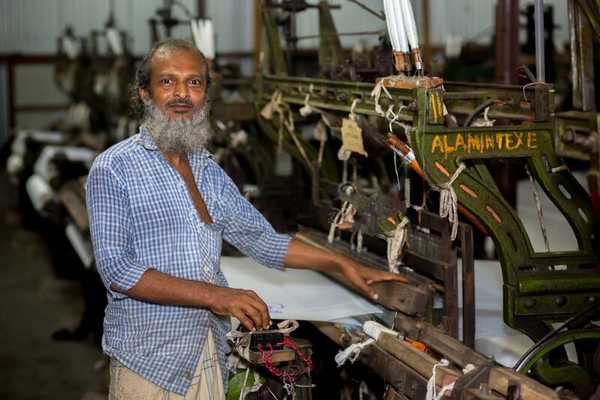International Dispatch: Bangladesh Yarn Inventory Backlog Severe

Bangladesh spinners and garment manufacturers have a large inventory backlog due to high inflation triggered by the Russia-Ukraine war and declining orders from international retailers and brands, leading to setbacks in cotton consumption and imports, according to a foreign news report.
In early 2021, many brands shifted from rival countries such as Vietnam and Indonesia, and Bangladesh began to receive more orders for apparel purchases, with ready-made garment exports continuing until mid-2022, although the Russia-Ukraine war and ongoing economic turmoil had a negative impact on the ready-made garment sector. In June and July of this year, apparel purchase orders from Bangladesh fell by about 20-30 percent, and many U.S. and European brands delayed shipments.

The Bangladesh Textile Mills Association (BTMA) said unsold yarn stocks at 300 spinning mills in Bangladesh have reached 600,000 tons. If a kilogram of yarn costs at least $4.50, the total value of unsold yarn is $2.7 billion. Yarn production has also declined because yarn in inventory is made from expensive cotton yarn mills cannot sell at low prices, which also affects cotton imports.
The latest report from the U.S. agricultural counsellor said Bangladesh's cotton consumption in 2022/23 could fall 11 percent to 8.3 million bales and cotton imports could drop to 8 million bales, a forecast that is about 10 percent lower than the one made in April this year.
Bangladesh Garment Manufacturers and Exporters Association (BTMA) said the situation will now take a few months to return to normal. According to the U.S. agricultural reference report, this year's yarn and fabric consumption in Bangladesh will be 1.8 million tons and 6 billion square meters, respectively, about 10% and 3.5% higher than the previous year. 2021/22, Bangladesh's domestic raw cotton consumption is estimated at 8.8 million bales.
2023-03-22 11:10

